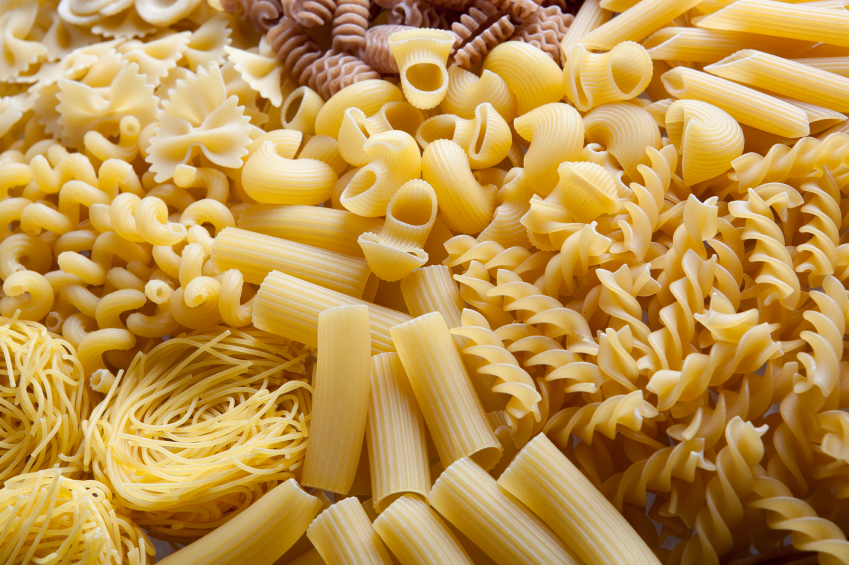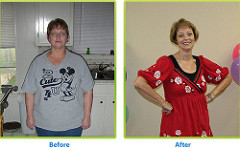Will Keeping a Food Record Help You Lose Weight?
One of the standard exercises of many weight-loss programs is keeping a food record. In the pre-digital age, this meant actually filling out a notebook with a notation of every morsel of food that passed through the lips. The amount of the food was to be quantified: If you ate a handful of nuts or grapes, you were to count them before swallowing. Ingredients in complex dishes such as lasagna, stews, or soups were to be teased out so their individual caloric contributions could be added up. And of course, beverages including alcohol, counted as well.
One diet program in the l970s insisted its members keep daily food logs for the duration of the program. Members were to come to a clinic daily for a weigh-in, and at that time turn in the food record of the previous day. A woman I knew who participated in this program told me she used to sit in her car in the parking lot of the clinic to fill out her record. "I made up what I had eaten. Who can be bothered remembering and measuring and writing it down?" She was far from original in utilizing this strategy.
Who can be bothered, indeed? Even now, with the support of digital devices that range from a notation on a smartphone to an immense database that will analyze the ingredients and calories in (almost) every food known to mankind, who wants to be bothered? Imagine going to a wedding reception buffet and before you start to eat from the multiple selections on your plate, you must first take out your phone and punch in the names of your food choices. Or imagine that you are debating whether you can indulge in an after-dinner treat of frozen yogurt while watching your favorite TV show, but you can't really pay attention to the show because you are counting spoonfuls of Ben and Jerry's? Perhaps you are in a supermarket and a lady is handing out crackers with some sort of spread. You take two samples, gobble them down, and realize you don't know what you just ate. How does one record that without looking foolish?
Why do diet programs suggest or even insist on food records? It is generally assumed that people who track their calorie consumption will do better on a diet, and some research has shown this to be the case. The reason is pretty obvious -- because anyone who is committed to writing down what has been eaten is committed to following a diet. Moreover, in order to make the recordkeeping reflect as accurately as possible what has been eaten, food choices are often severely limited to items whose composition is known (grilled chicken breast rather than chicken pot pie) and foods that must be counted, like cookies or peanuts, are avoided. Who is going to stop eating M&Ms because he couldn't remember if he had just eaten 11 or 12? It's better not to eat them at all.
The catch is that a weakening of resolve to keep a food record is often an early symptom of loss of commitment to the diet. Excuses for forgetting to keep an accurate, up-to-date record are even more numerous than excuses for not exercising. Again, who can be bothered?
But there are times when keeping track of what is being eaten is useful:
- If you have been on a diet for several weeks and weight loss stalls, keep track of what you are eating and drinking for five days -- three weekdays and the weekend. You don't have to be precise about measurements, but notice what you are mindlessly nibbling, how many courses you ate at an extravagant Sunday brunch, and/or how a skipped lunch turned into a gargantuan supper. Note alcohol intake, because those calories add up fast, or;
- Several months or a year or more after a diet, you notice that your "thin" clothes are not fitting. The scale confirms that this is due to weight gain, not a bad dry cleaner. Keep track of what you are eating for seven or eight days. Do this before even thinking of starting a diet. It is important to know from where those extra calories are coming. Are you back to eating large portion sizes, adding too much salad dressing to your salads or butter to your rolls? Are you treating yourself to too many high-calorie snacks, or too much beer or wine? It may be none of the above. The cause could be a change in exercise. But if it is a change in eating, then you may be able to modify what you eat and lose weight without going on a formal diet; or perhaps
- You are developing the early symptoms of scurvy. Just kidding. But you have a vague sense of not eating from most of the food groups most of the time. Has it been days since you ate a green vegetable or a red fruit (strawberry, watermelon, apple, cherry or red grapefruit)? Was your last dairy product an ice cream cone? Are you hoping that tortilla chips are high in fiber? Write down what you are typically eating for two to three days during the week and on the weekend. Compare your list with the recommended foods for good nutrition (fruits and vegetables, whole-grain carbohydrates, low-fat dairy products, lean protein). Then go to the supermarket. And lastly;
- Despite following a weight-loss program exactly, you are not losing weight. No one is sympathetic because frankly, they don't believe you. Write down exactly what you are eating for two weeks and then show it to your physician. You may have a metabolic problem that is preventing you from losing weight, and your food record is proof that something might be wrong.
Always keep your old records. A hundred years from now, someone might find them and marvel at what you were eating early in the 21st century.
For more by Judith J. Wurtman, Ph.D., click here.
For more on weight loss, click here.
-
7 Ways to Get Rid of Stomach Fat
Getting rid of stomach fat can often be
-
Childhood Obesity Impacted by Marketing
Children can be easily influenced by what they see in the media. O
-
Weight Loss Supplements: Not For Addiction
The best way to lose weight is to exercise and have a consistent heal
-
What Real Reviews Say About NutriSystem
If youve seen the commercials of NutriSystem, youd surely want to lose
-
Comprehensive Employee Wellness Programming To Control Your Rising Health Care Costs
Employer sponsored health insurance premiums have risen 131% in the
-
Will Losing Weight Help Your Excessive Sweating?
If you are overweight and also suffer fr
- DON'T MISS
- How To Slim Down Easily Nowadays
- Losing Weight Without Diets
- Natural Cures That Work: Separating Fact from Fiction
- What Is The South Beach Diet
- Dr. Oz Approved Diet Turns Out To Be A Scam
- Should You Buy The Fat Loss For Idiots Program?
- Foolproof Ways To Avoid Weight Gain
- Weight Loss Motivation Tips and Ideas to Stir Your Enthusiasm
- Diet plan Strategy – What fat burning foods need to we eat to realize loss of weight quick
- Gaining Energy And Losing Weight By Forming Habits




